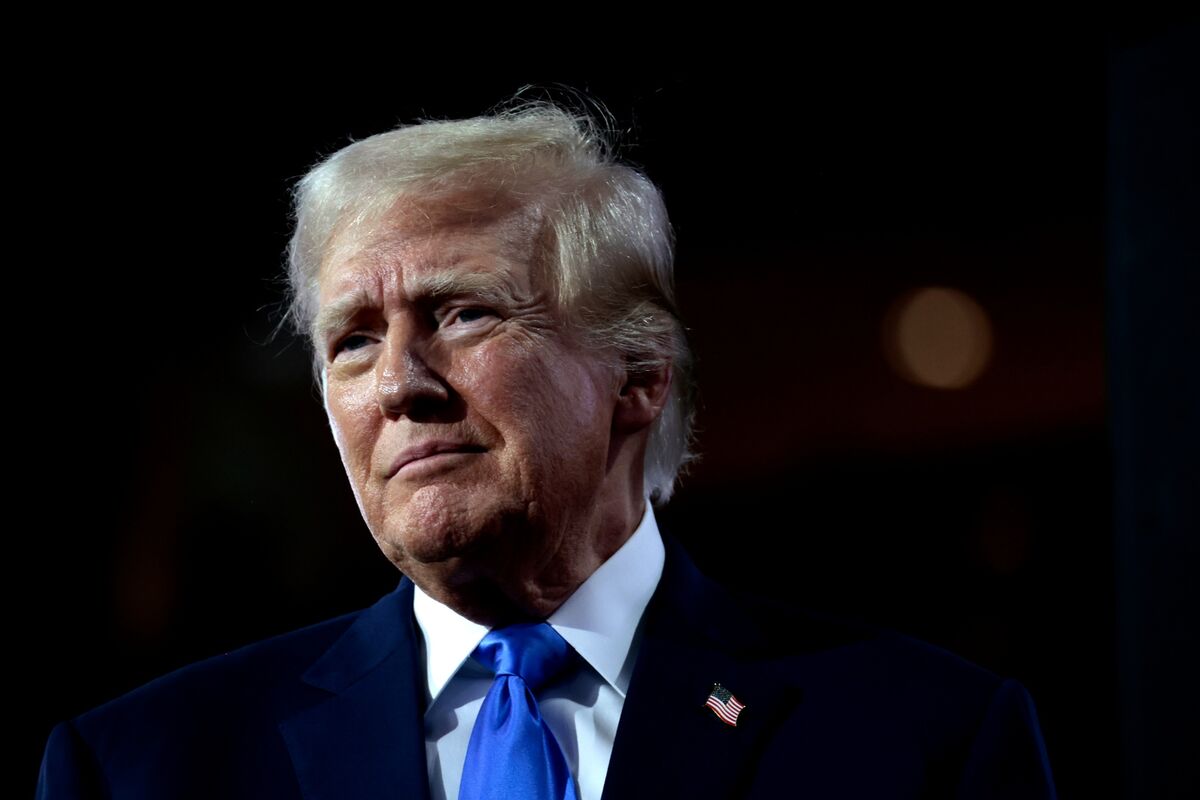How Zuckerberg's Meta Will Navigate The Return Of Trump

Table of Contents
The Balancing Act: Content Moderation and Free Speech
Zuckerberg's Meta faces a classic Catch-22: how to balance its commitment to free speech with the urgent need to prevent the spread of misinformation and harmful content. Trump's past rhetoric on social media, characterized by inflammatory language and unsubstantiated claims, presents a significant risk. The dilemma is acute.
- Inciting Violence and Disinformation: Trump's return carries the potential to incite violence or spread disinformation, potentially leading to real-world consequences. Meta's algorithms could inadvertently amplify such content, exacerbating the problem.
- Legal and Reputational Risks: Allowing Trump back without robust safeguards could expose Meta to significant legal and reputational risks. Lawsuits alleging negligence or complicity in harmful activities are a real possibility.
- Stakeholder Pressure: Meta is under immense pressure from various stakeholders. Politicians may demand accountability, activists may call for a permanent ban, and users themselves are sharply divided, creating a volatile environment for decision-making.
- Adapting Content Moderation Policies: Meta's current content moderation policies, already under scrutiny, may need significant adjustments to effectively manage the potential risks associated with Trump's return. This includes improving detection of harmful content, enhancing fact-checking mechanisms, and clarifying its enforcement procedures.
The Business Implications: User Engagement and Advertising
The impact of Trump's return on user engagement and advertising revenue is uncertain. Will his presence attract or repel users? This is a critical question for Zuckerberg's Meta's bottom line.
- Increased Engagement and Revenue (Potential): Trump's substantial following could drive increased user engagement and, consequently, advertising revenue. His posts and interactions could generate significant traffic and attention.
- Advertiser Boycotts (Risk): Conversely, if Meta is perceived as being too lenient towards Trump, advertisers might boycott the platform, leading to significant financial losses. Brands are increasingly wary of associating with platforms that harbor controversial content.
- Economic Consequences: The economic consequences for Meta will depend heavily on its decision and how it is perceived by both users and advertisers. A poorly handled situation could lead to substantial financial repercussions.
Navigating Political Polarization: The Role of Algorithms and Transparency
Meta's algorithms play a crucial role in shaping the user experience and can inadvertently contribute to political polarization. Trump's return significantly amplifies this concern.
- Amplifying Divisiveness: Meta's algorithms could amplify Trump's messages, further polarizing users and fostering echo chambers. This could have severe societal implications.
- Algorithmic Transparency and Accountability: Transparency and accountability regarding Meta's algorithms are paramount. Users need to understand how these algorithms work and how they might influence the spread of information, especially in politically charged contexts.
- Mitigating Algorithmic Bias: Strategies to mitigate the negative effects of algorithmic bias are essential. This includes ongoing audits, diverse teams designing algorithms, and improved mechanisms for user feedback and control.
Setting Precedents: Future Implications for Content Moderation
Meta's decision regarding Trump will set a significant precedent for content moderation across social media platforms. The implications extend far beyond a single account.
- Influencing Other Platforms: Meta's handling of this situation will undoubtedly influence how other platforms approach similar dilemmas involving high-profile, controversial figures.
- Legal Precedent: The decision could set a legal precedent for content moderation, impacting future court cases and legislative actions.
- Long-Term Effects on the Digital Public Square: The long-term effects on the digital public square are potentially profound. Meta's choice will shape the future of online discourse and the balance between free speech and responsible content moderation.
How Zuckerberg's Meta Will Navigate the Return of Trump: A Look Ahead
The return of Donald Trump to platforms like Facebook and Instagram presents Zuckerberg's Meta with an unprecedented challenge. The balancing act between safeguarding free speech and preventing the spread of harmful content is precarious. The business implications, the role of algorithms, and the broader implications for content moderation all contribute to the complexity of this situation. Meta's decision will undoubtedly shape the future of social media and its role in political discourse for years to come. How should Zuckerberg's Meta handle this delicate situation? Share your thoughts on how Meta should navigate the return of Trump and the future of content moderation on its platforms. Let's discuss the long-term impact of Zuckerberg's Meta’s approach to Trump’s return on the future of social media.

Featured Posts
-
 Rs 1 45 Lakh Ultraviolette Tesseract Electric Scooter Launch And Specifications
May 17, 2025
Rs 1 45 Lakh Ultraviolette Tesseract Electric Scooter Launch And Specifications
May 17, 2025 -
 Knicks Revival Thibodeaus Evolution And The Key To Success
May 17, 2025
Knicks Revival Thibodeaus Evolution And The Key To Success
May 17, 2025 -
 All The Moto News You Need Gncc Mx Sx Flat Track And Enduro
May 17, 2025
All The Moto News You Need Gncc Mx Sx Flat Track And Enduro
May 17, 2025 -
 Uber And Heads Up For Tails Partner To Offer Pet Friendly Rides In Delhi And Mumbai
May 17, 2025
Uber And Heads Up For Tails Partner To Offer Pet Friendly Rides In Delhi And Mumbai
May 17, 2025 -
 Rynok Truda V Dubae Dlya Rossiyan Aktualnaya Situatsiya V 2025 Godu
May 17, 2025
Rynok Truda V Dubae Dlya Rossiyan Aktualnaya Situatsiya V 2025 Godu
May 17, 2025
